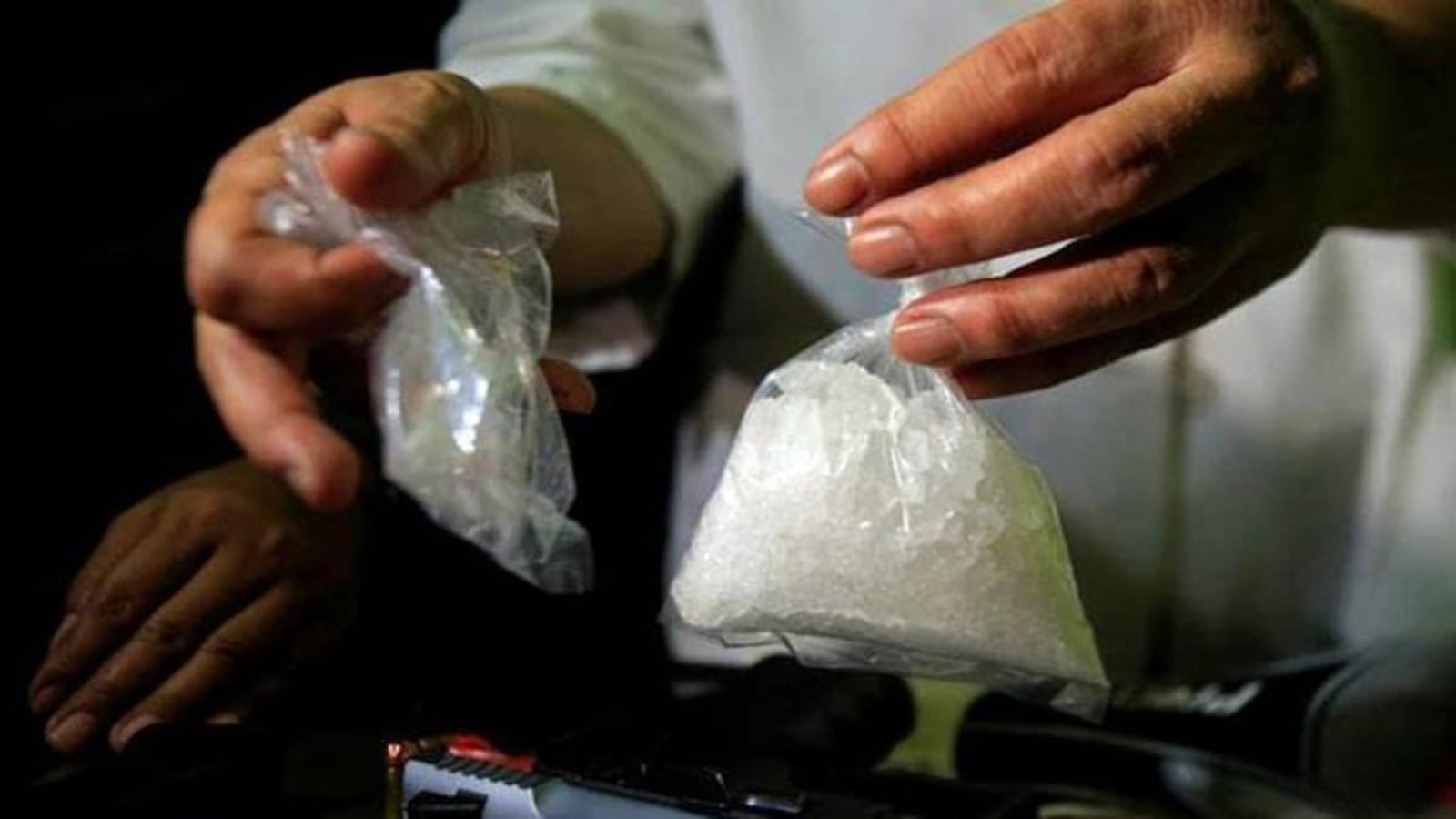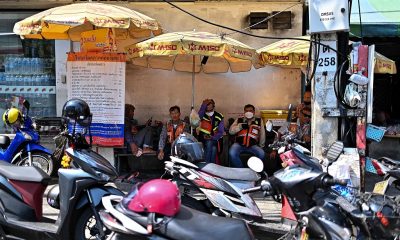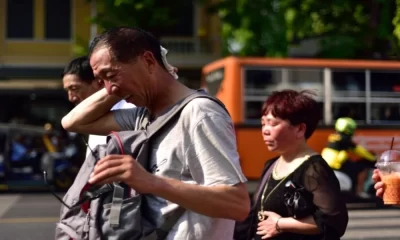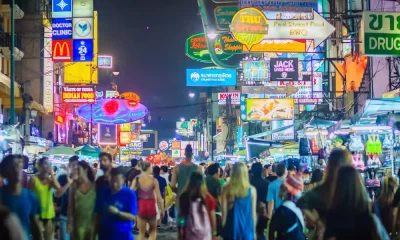News
Thailand to Sets Up 3 Drug Suppression Centres in North and Northeast
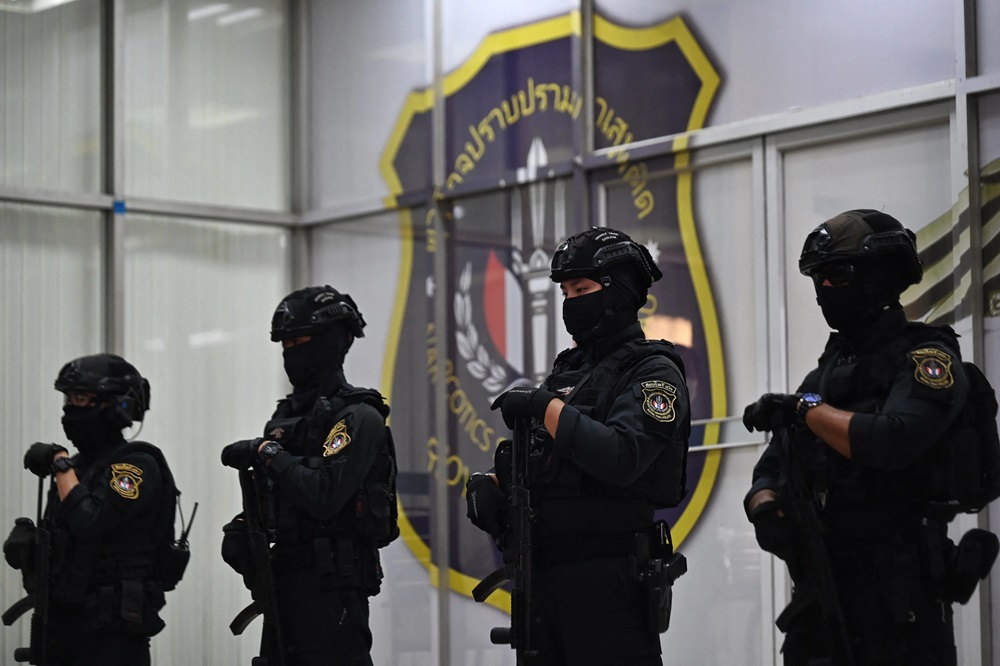
The government of Thailand has announced it intends to set up major narcotic drug command centres in three provinces in the North and Northeast. The drug command centres are in line with the present government’s decision to implement more measures to promote total drug suppression, with results expected within a year.
According to government spokesperson, Chai Wacharonke, the command centres would be constructed in 11 districts in Chiang Rai and Chiang Mai, as well as four districts in northeastern Thailand’s Nakhon Phanom. Aimed to boost efficiency in terms of cooperation and intelligence sharing among authorities involved in the drug war.
The three provinces were chosen because they are the principal routes utilised by drug trafficking organisations to deliver methamphetamine and other illegal narcotics.
According to a Ministry of Justice research, previous to 2022, at least 80% of seized narcotics, largely produced around the Myanmar-Thailand-Laos border, or the so-called Golden Triangle, originated in the northern provinces.
As repression efforts in those areas became more stringent, drug dealers relocated an estimated 45% of their imports to the northeastern region.
The route’s enforcement measures have resulted in an increase in narcotics seizures. According to the study, 500 million tablets have been confiscated this year, compared to roughly 70 million in 2003.
According to Mr Chai, the Royal Thai Police believe that at least 600,000 people in the country are hooked to illegal narcotics, with 30,000 suffering from mental illnesses as a result of their addiction.
The revelation of the new command centres followed the arrest of three members of a narcotics gang in Chiang Mai’s Muang district a day earlier, with 5 million pills recovered.
Meth Use and Trafficking in Thailand
Methamphetamine use in Thailand increased by 30% last year, according to new study, as the illicit drug’s production boom in neighbouring Myanmar flooded the region with ever-cheaper supply.
According to Thailand’s Chulalongkorn University, an estimated 57,900 Thais aged 18 to 65 took meth at least once last year, up from 44,500 the previous year.
Thailand has reacted by increasing patrols along its northern borders with Myanmar and Laos, which drug gangs are also utilising to transport meth abroad. The government changed the rules such that anyone found with more than five yaba tablets was considered a distributor.
Anyone caught with 5 or less tables can now be treated as a user and escape incarceration by agreeing to treatment. Dealers, on the other hand, face prison sentences of up to 15 years, and up to 20 years if caught selling to minors.
A cross-border partnership between law enforcement agencies from Southeast Asian countries, funded by the UN, is assisting in the fight against organised crime along one of the world’s “largest drug trafficking corridors” in Thailand.
Meth from the Golden Triangle
The initiative is focused on the Golden Triangle, which connects Thailand, Myanmar, and Laos and is a transit point for illicit goods, including drugs, to lucrative markets throughout Southeast Asia.
Shan state in Myanmar, north of Chiang Rai province in Thailand, is a major producer of heroin and opium, as well as synthetic narcotics like methamphetamine, which are spreading throughout the region and feeding the entire Asia Pacific region.
According to Jeremy Douglas, the Regional Representative of the United Nations Office on Drugs and Crime (UNODC) for Southeast Asia and the Pacific, there are complex governance challenges within Myanmar, with several fragmented organisations ruling various territory.
Drug production occurs in these typically distant places where borders are open and porous; it is extremely easy to smuggle products into and out of Myanmar, posing issues for its neighbours.
According to UNODC, there has been a significant increase in synthetic drugs made by organised crime networks that have moved their operations from other regions of the region where they may operate with relative impunity. They have made significant investments in the construction of large drug manufacturing plants.
It necessitates government cooperation at many levels, particularly frontline cooperation at the borders where trafficking occurs.
This entails exchanging information and undertaking cooperative operations to block the delivery of chemicals needed to produce synthetic narcotics into Myanmar, as well as the trade of hundreds of tonnes of pharmaceuticals the opposite way.
We must also address the business of organised crime, which includes money laundering and all the other nefarious elements linked with the trafficking of a variety of different things, including wildlife products, weaponry, and even people trafficking.
Because transnational criminality is a shared responsibility, collaboration is essential. Coordination and cooperation are essential since a quick reaction is frequently required at these border crossings.
This is why the UNODC has sponsored the development of approximately 120 border liaison offices, or BLOs, throughout the area, allowing law enforcement agencies to share information and take action.

